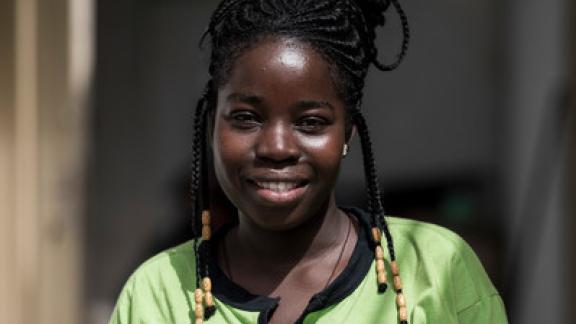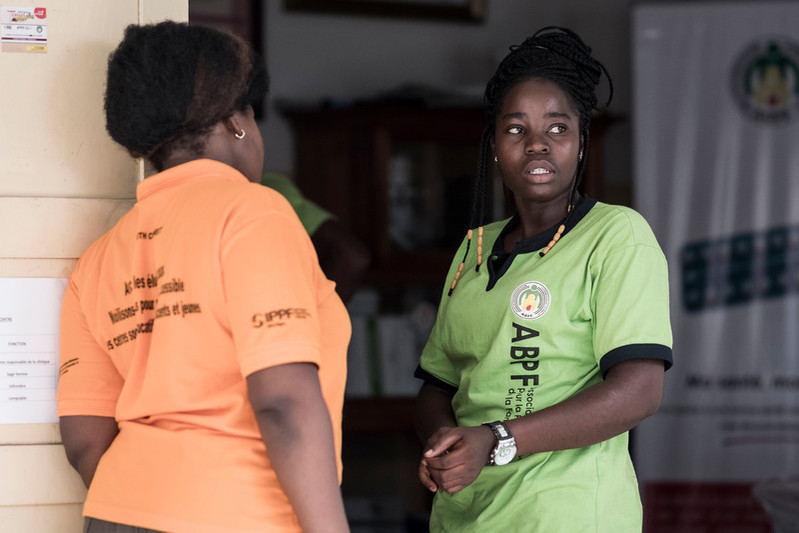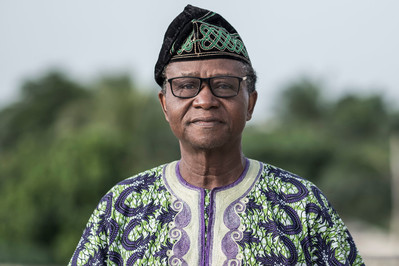Many women and girls in Benin who are considering an abortion tell no one. Since 2014, the Association Beninoise pour la Promotion de la Famille (ABPF) has been running a project, supported by the Packard Foundation, specifically aimed at tackling abortion stigma so that women and girls seeking a safe abortion can access the right information and services.
Some young women are making their own decision to end an unintended pregnancy safely at ABPF clinics and telling friends that help without judgement is available.
Choosing education
When 22-year-old economics student, Floriane*, missed a period and discovered she was pregnant, she says, “I couldn’t believe it; I was two months pregnant.” Floriane says she wasn’t ready to get pregnant and decided to have an abortion. She wanted to continue with her education and graduate.
At her follow-up appointment two months after the abortion, Floriane received a full health check and contraceptive advice. Floriane had heard about the ABPF clinic at an event on her campus in 2016 and joined the Young People’s Action Movement. “The other friends I have in the movement knew [about my abortion],” along with her boyfriend, she said. But her parents could not know what had happened. “I can’t talk about that with them,” she says. “They wouldn’t have taken that well. My dad had paid for my studies.”
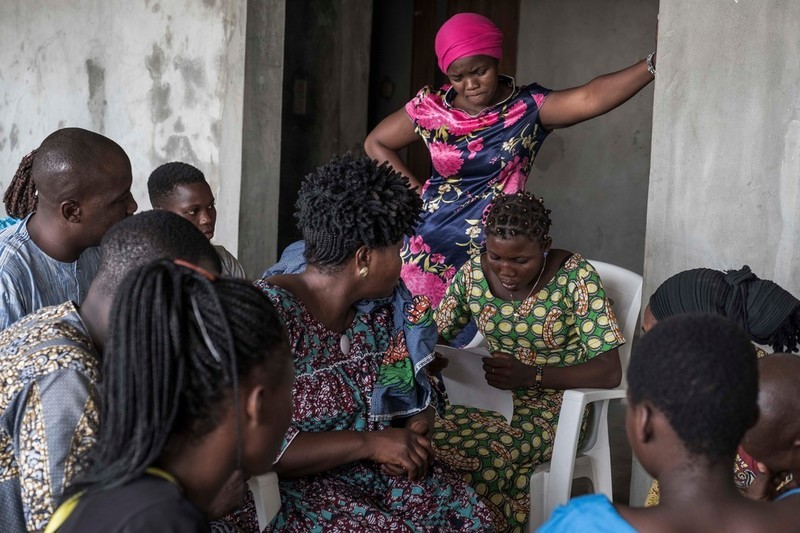
Facing choices alone
Marielle, 27, only told her immediate family about her abortion, which she opted for after recent surgery left her feeling unable to carry a pregnancy to term.
“My extended family would not have agreed with it though,” she explains, “and neither would anyone at work. The judgement is very hurtful, and they won’t necessarily say it to your face, but Benin society is very tradition-bound,” the hospitality worker adds.
Since her abortion at the ABPF clinic, Marielle has acted as a confidante for a friend whose own family would be less than supportive of an abortion. “I’ve already told her about the services they offer here. Public hospitals don’t listen to you; they just judge you,” she said. Marielle says that she knows women from all sectors of society who have been attacked and criticized for having an abortion, a phenomenon she says is immune to social status. “No one is spared. It doesn’t matter how rich you are,” she notes.
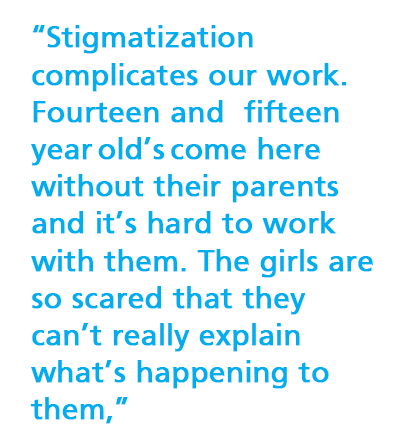 Pregnancy outside of marriage in Benin is usually seen as incompatible with education, even though many young people remain at school well into their twenties.
Pregnancy outside of marriage in Benin is usually seen as incompatible with education, even though many young people remain at school well into their twenties.
Joceline* did not tell her father about her abortion. Her father supports her financially and she feared his response to her being pregnant and unmarried. “Then there is the neighbourhood, what would everyone else say if they knew I had an abortion?” she added, looking at the floor.
“I came here alone,” said Joceline, referring to the day she visited the ABPF youth clinic in Cotonou to end an unwanted pregnancy. “I preferred to come by myself so I wouldn’t expose myself to problems,” the 20-year-old apprentice tailor said. “The father couldn’t support the baby but he did ask a friend who knew about this place. That friend helped us.”
Fear of stigmatization pushes many young women to seek abortions with unsafe providers in Benin, including local witchdoctors, or to attempt to get end a pregnancy themselves. “Before, I was thinking about taking insecticide to get rid of the pregnancy,” Joceline says frankly.
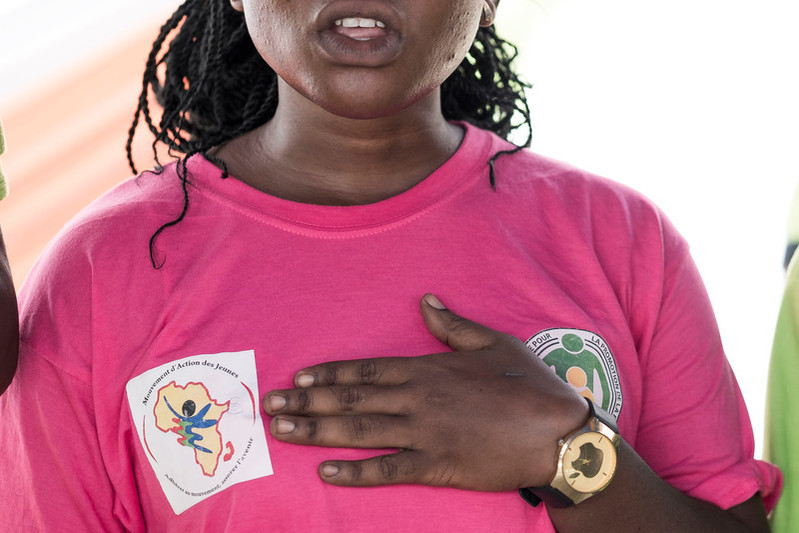
Those who attend the ABPF youth group sessions say their experiences with the young volunteers have given them the confidence to open up about their abortion, and to not feel ashamed about their choice.
Tackling stigma and tradition
Stigmatization for social and religious reasons makes the work of medical professionals much more difficult, explains Souliya Mevo Tairou, a midwife at a youth-only ABPF clinic in Cotonou.
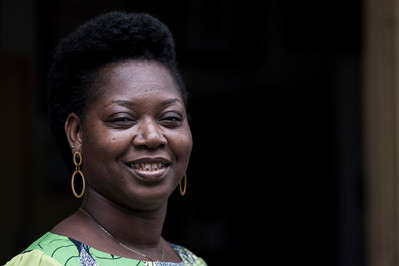
“Stigmatization complicates our work. Fourteen and 15-year-olds come here without their parents and it’s hard to work with them. The girls are so scared that they can’t really explain what’s happening to them,” she says. “They come here after going to the traditional healers when that hasn’t worked, and they are bleeding or have an infection.”
Unsafe abortions account for 15 percent of maternal deaths in Benin, according to hospital statistics.
The antidote, says Mevo Tairo, is the Young People’s Action Movement. “Here, with the Youth and Abortion Stigma Project, we have awareness sessions. The young people and those supervising give out their numbers and tell them to call if they have a problem. When one comes and is satisfied… they tell the others,” she adds. That creates whisper networks to carry the right information to women and girls in need.
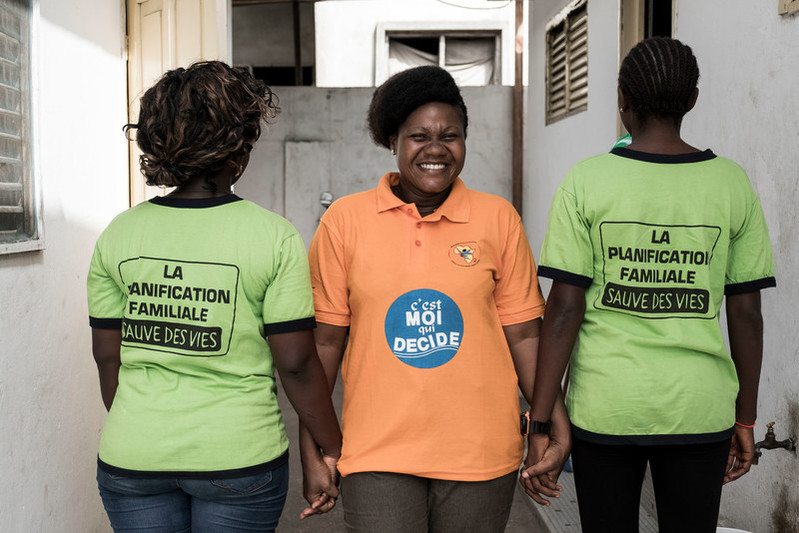
*Names have been changed
when
country
Benin
Subject
Abortion Care
Related Member Association
Association Béninoise pour la Promotion de la Famille







